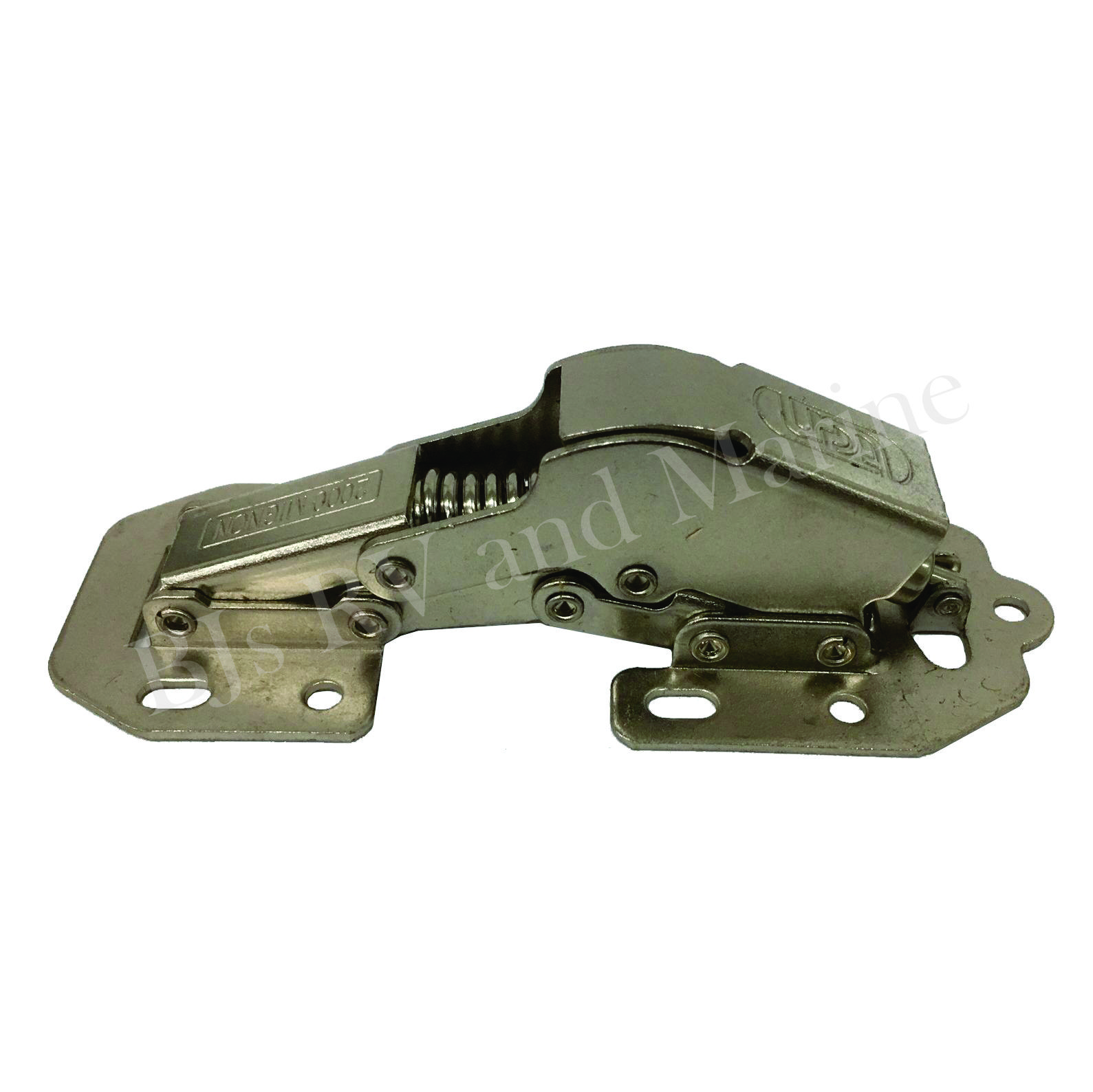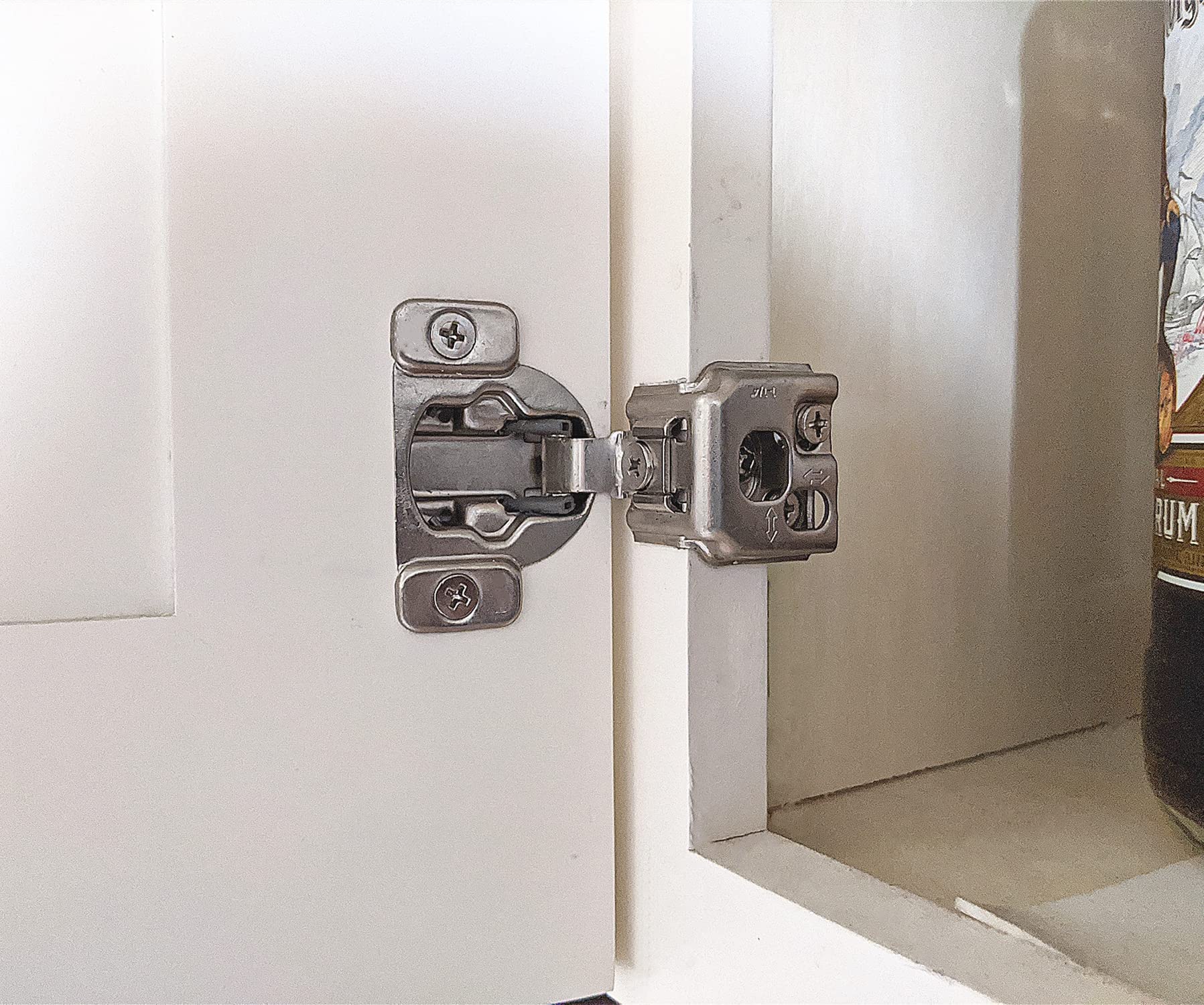Choosing the Right Hinges for Your Camper

Yo, Surabaya peeps! Building your own sick camper van? Choosing the right hinges might seem *low-key* unimportant, but trust me, it’s a total game-changer. The wrong hinges can lead to wobbly doors, broken cabinets, and a seriously bummed-out vibe in your awesome mobile home. Let’s get this right.
Choosing the right hinges for your camper cabinets depends on a few key factors. Think of it like choosing the right wheels for your BMX – you wouldn’t use tiny training wheels on a gnarly jump bike, right? We’re talking about weight, size, style, and your budget. Getting this right means your camper will look and function flawlessly.
Cabinet Weight and Door Size
The weight of your cabinet and the size of the door are major factors. A heavy cabinet with a large door needs stronger hinges than a small, lightweight one. Imagine trying to hold up a massive TV with tiny, flimsy hinges – disaster! For heavier cabinets, consider using full overlay hinges with a higher weight capacity. For smaller, lighter doors, you might get away with something more lightweight and minimalist. Think about the materials too – a solid wood door will be heavier than a lightweight plywood one.
Desired Aesthetic and Style
Your camper’s style is your own personal expression, so the hinges should fit the overall vibe. Do you want something super sleek and modern, or more rustic and vintage? There are tons of hinge styles available – from simple butt hinges to concealed hinges that give a super clean look. Think about the finish too – brushed nickel, matte black, or polished chrome? The little details matter! A sleek, modern camper might rock brushed nickel hinges, while a retro-inspired build could totally nail it with some vintage-style brass hinges.
Budget Considerations, Camper cabinet door hinges
Let’s be real, budget is always a factor. High-end, heavy-duty hinges are gonna cost more than basic ones. However, investing in quality hinges upfront can save you money in the long run by preventing damage and the need for replacements. It’s a balance – find hinges that offer the right blend of quality and affordability for your project. Think of it as investing in a good pair of sneakers – you might spend a bit more, but they’ll last longer and perform better.
Decision-Making Flowchart for Hinge Selection
To make things easier, here’s a simple flowchart to help you choose:
1. Determine Cabinet Weight and Door Size: Weigh your cabinet and measure the door. Is it light (<5kg) or heavy (>10kg)? Is the door small (<30cm) or large (>60cm)?
2. Assess Desired Aesthetic: What style are you going for? Modern, rustic, vintage?
3. Consider Budget: How much are you willing to spend per hinge?
4. Select Hinge Type: Based on steps 1-3, choose a hinge type (e.g., full overlay, semi-overlay, concealed).
5. Check Weight Capacity: Ensure the chosen hinge’s weight capacity exceeds your cabinet’s weight.
6. Finalize Selection: Confirm your hinge choice based on style, finish, and budget.
Practical Tips for Hinge Selection and Longevity
* Always check the weight capacity: This is crucial to prevent hinges from failing and causing damage.
* Use the right number of hinges: Don’t skimp – use enough hinges to properly support the door’s weight.
* Install hinges correctly: Proper installation is key to ensuring longevity and smooth operation.
* Regular maintenance: Keep hinges lubricated to prevent squeaking and ensure smooth movement. A little WD-40 goes a long way.
* Choose high-quality materials: Stainless steel or high-quality zinc alloy hinges are more durable than cheaper alternatives.
Maintenance and Repair of Camper Cabinet Door Hinges

Yo, peeps! Keeping your camper’s cabinets smooth and lookin’ fresh is key for a rad road trip. Nobody wants doors falling off mid-adventure, right? This section’s all about fixing those hinge headaches and keeping things running smoothly. We’ll cover the common problems, how to fix ’em, and how to prevent them from happening in the first place.
Common Problems and Their Causes
Worn-out hinges are a total bummer, especially when you’re trying to chill in your camper. Several things can cause problems, like constant jarring on bumpy roads, moisture damage, or just plain old wear and tear from frequent use. Let’s break down the usual suspects. Loose hinges are often caused by vibrations loosening screws over time. Squeaking hinges usually mean they need lubrication. Broken hinges, sadly, often mean replacement is necessary. This can be due to excessive force or simply age.
Troubleshooting and Repairing Hinge Issues
Alright, so your hinge is acting up. Don’t panic! Here’s a step-by-step guide to get it back in action. You’ll need a screwdriver (probably both Phillips and flathead), a wrench (if your hinges have nuts), some lubricant (like WD-40 or silicone spray), and maybe a replacement hinge if it’s totally kaput.
- Loose Hinges: First, check if the screws are loose. Tighten them with the appropriate screwdriver. If the screw holes are stripped, you might need to fill them with wood glue and tiny toothpicks, let it dry, then re-drill and screw in. If that doesn’t work, you might need to use longer screws or even stronger ones.
- Squeaking Hinges: Spray some lubricant (WD-40 or silicone spray works well) onto the hinge pins. Work the hinge back and forth a few times to distribute the lubricant. Wipe away any excess. For stubborn squeaks, you might need to remove the hinge pin, lubricate it thoroughly, and then reinsert it.
- Broken Hinges: If a hinge is beyond repair, you’ll need a replacement. Measure the hinge carefully to get the right size and type. Remove the broken hinge and install the new one, ensuring it’s aligned correctly. Tighten the screws securely.
Preventative Maintenance
Prevention is way better than a frantic repair job on the road, right? Regular maintenance will keep your hinges happy and your cabinets looking sharp.
Camper cabinet door hinges – Cleaning is crucial. Regularly wipe down your hinges with a damp cloth to remove dirt and grime. This helps prevent corrosion and keeps things moving smoothly. Lubrication is equally important. At least once a year, or more frequently if you use your camper often, spray your hinges with a suitable lubricant (WD-40 or silicone spray). Work the hinges to distribute the lubricant evenly and then wipe off any excess. This will keep them quiet and prevent premature wear and tear. Remember, a little preventative maintenance goes a long way!
